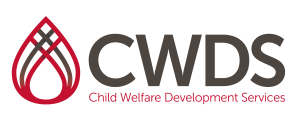CWDS Curriculum
Negotiation Skills with Non-Minor Dependent Youth (Coaching)
Level: Advanced Practice – Lineworker and Supervisor
Credits: 2.5
Intended Audience: Social Workers and Supervisors who work with older teens and Non-Minor Dependents
Description of Course: The course will cover Negotiation strategies for working with this population. This is Part 2 and 3 of a three-part training on this topic. Participants
must have taken Part 1 (webinar) prior to taking Part 2 and 3. Part 2 consists of an assignment to observe/engage in skills in negotiating effectively with a youth. Part 3 consists of reporting out assignments and activities and receiving coaching/feedback in a 1.5 hour coaching session.
Intended Objectives:
- Identify at least two difficulties and successes they have experienced with NMDs and negotiating case plan goals.
- Identify differences between Emotion Coaching, Motivational Interviewing, and
- Solution Focused questioning and when each strategy is most useful in working with Non-Minor Dependents (NMDs).
- Identify how acting as a “consultant” can enhance the relationship between social worker and NMD.
- Appreciate how assisting a youth (using Motivational Interviewing) to explore their own values can help a NMD to develop discrepancy between their current behaviors and future goals.
- Value how assisting a youth to develop their own discrepancy will enhance a NMD’s commitment to making healthier choices.
- Participate in coaching session on negotiation skills and receive feedback from a coach.
Topics Include:
- Assessing “where the client is” in terms of setting goals and working towards those goals.
- Choose a differentiated response based on the individual needs of clients.
- Recognizing that Adolescence has been re-defined and stretched out in or society and that Extended Care is an opportunity to have a positive influence with young people, as long as we can be seen as a good “consultant.”
- What researchers are learning about effective strategies to use in helping teens and young adults thrive and strengthen their own “decision-making muscles.”
- Application of Emotion Coaching, Motivational Interviewing, and Solution-Focused questioning.
Independent Living Skills & Youth



